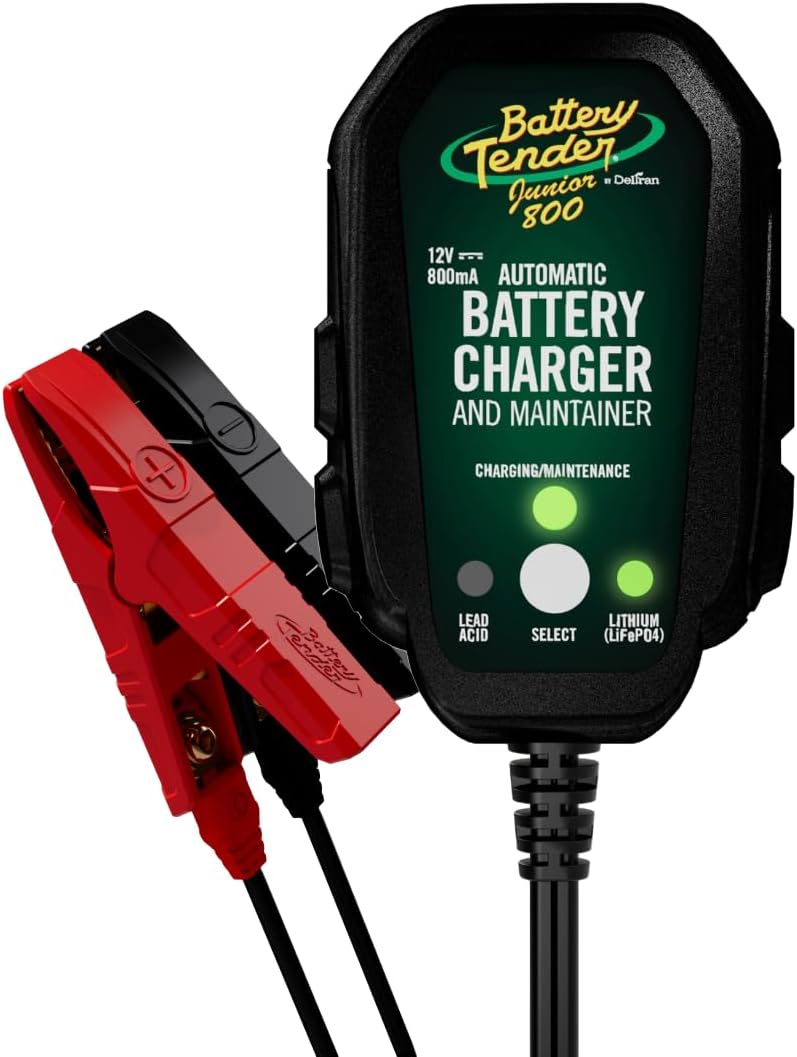IS COLD WEATHER WRECKING YOUR CAR’S SENSORS? A MASTER TECH’S GUIDE
That first truly frigid morning of the year arrives. You get in your car, turn the key, and your dashboard lights up like a Christmas tree. The tire pressure light is on, the check engine light makes a surprise appearance, and your parking assist screams at you for no reason. It’s a frustrating and common experience for millions of drivers as winter sets in. Modern vehicles rely on a complex network of dozens of sensors to manage everything from fuel efficiency to safety features. And as I’ve seen countless times in my service bay, this sensitive electronic ecosystem has one great enemy: the cold.
But is the cold actually “breaking” these sensors, or is something else going on? This guide will pull back the curtain and give you a master technician’s view of exactly how and why cold weather affects your car’s sensors, and—most importantly—what you can do about it.
THE SHORT ANSWER: YES, BUT IT’S RARELY PERMANENT.
Yes, cold weather absolutely affects vehicle sensors, but it rarely causes them to fail permanently. The vast majority of cold-related sensor issues fall into two categories:
- Physical Obstruction: Snow, ice, frost, and road grime physically block the sensor’s view, causing it to malfunction temporarily.
- Temporary Physical Changes: The cold causes physical changes in the things the sensors are measuring (like air density or tire pressure), leading to a warning light even though the sensor itself is working perfectly.
A weak battery, made weaker by the cold, is also a major culprit that can trigger a cascade of false sensor readings.
THE POWER PLANT: YOUR BATTERY IS THE #1 SUSPECT
Before we dive into individual sensors, we have to talk about the battery. Think of your car’s battery as its heart, pumping the electrical lifeblood to the vehicle’s brain (the ECU) and nervous system (the sensors). Cold weather is brutal on a battery. The chemical reactions that generate electricity slow down in the cold, reducing its cranking power by as much as 50% on a freezing day.
When you start your car, this already-weakened battery has to give everything it has to turn the engine over. This can cause a momentary drop in the overall system voltage. Your car’s sensitive electronic modules and sensors see this voltage drop and can temporarily glitch out, throwing a fault code and a warning light on your dash. If your car battery keeps dying or is more than 3-4 years old, it is the prime suspect for any mysterious, widespread electronic issues in the winter.
A SENSOR-BY-SENSOR BREAKDOWN: SYMPTOMS, CAUSES, AND FIXES
Let’s diagnose the most common winter sensor problems one by one.
🌡️1. TIRE PRESSURE MONITORING SYSTEM (TPMS)
The Symptom: You start your car on a cold morning and the little flat tire symbol (!) is illuminated on your dash, but your tires look fine.
The Cause: Physics! Air is a gas, and gases contract when they get cold. For every 10°F drop in ambient temperature, your tire pressure will drop by about 1 PSI (pound per square inch). Your TPMS is designed to trigger a warning when the pressure drops roughly 25% below the recommended level. A tire that was perfectly inflated at 70°F can easily trigger the light at 20°F.
The Fix: This is a real, but usually not dangerous, warning. Check your tire pressure with a reliable gauge and inflate them to the pressure listed on the sticker inside your driver’s side door jamb. Remember to check them when the tires are “cold” (haven’t been driven for a few hours) for an accurate reading.
🅿️2. PARKING & PROXIMITY SENSORS
The Symptom: Your backup alarm beeps constantly when you put the car in reverse, even though there’s nothing behind you. Your blind-spot monitor might also be disabled.
The Cause: Physical obstruction. These sensors, usually small circles on your bumpers, work like a bat’s echolocation, sending out ultrasonic waves that bounce off objects. A thin, nearly invisible layer of frost, ice, snow, or dried road salt is enough to block these waves and cause the system to think there’s an object right in front of it.
The Fix: Simple and satisfying. Gently wipe off each sensor with a soft cloth. A quick spray of de-icer can help with stubborn ice. Once the sensors are clean and clear, the system should reset and function normally.
📷3. ADVANCED DRIVER-ASSISTANCE SYSTEMS (ADAS)
The Symptom: You get a message like “Forward Collision Warning Unavailable” or “Lane Keeping Assist Off.”
The Cause: Similar to parking sensors, this is almost always an obstruction issue. These systems rely on a camera mounted behind your rearview mirror and/or a radar sensor in your car’s front grille. A patch of frost on the windshield or snow packed into the grille will blind the system, and it will temporarily disable itself for safety.
The Fix: Ensure your windshield is completely defrosted and clean, especially the area in front of the rearview mirror. Gently clear any snow or ice from the vehicle’s front emblem or grille where the radar sensor is often housed. The system should reactivate automatically once its view is clear.
⚙️4. CHECK ENGINE LIGHT: MAF OR O2 SENSORS
The Symptom: The dreaded Check Engine Light comes on during a particularly cold snap.
The Cause: This can be a few things.
- Mass Airflow (MAF) Sensor: This sensor measures the mass of the air entering the engine. Cold air is much denser than warm air. Sometimes, this dramatic change in density can lead to a reading that the car’s computer thinks is out of range, triggering a code. Condensation freezing on the sensor element can also cause a temporary fault.
- Oxygen (O2) Sensors: These sensors in your exhaust need to be very hot to work correctly. They have internal heaters to get them to temperature quickly. In extreme cold, the heater might not be able to warm the sensor fast enough, causing the computer to register a “slow response” fault.
The Fix: This is where an OBD2 scanner is invaluable. If the code is for a MAF or O2 sensor, the light may go off on its own after a few warm-up cycles. If it persists, cleaning the MAF sensor with a dedicated cleaner is a simple DIY job. If the problem doesn’t resolve, it’s time to visit a professional, but often it’s just a temporary cold-weather glitch.
YOUR WINTER SENSOR SURVIVAL KIT
From my experience, having a few key tools on hand can solve 90% of winter electronic issues and save you a trip to the shop. Here’s what I recommend every driver in a cold climate should have.

ANCEL AD310 OBD2 SCANNER
Your number one tool for demystifying the check engine light. It tells you the fault code so you know if it’s a serious problem or a minor, cold-related glitch.
Check Price
BATTERY TENDER JR. 800
The best defense against battery-related electronic problems. If your car sits for long periods in the cold, this keeps the battery optimally charged and healthy.
Check Price
SNOW MOVER EXTENDABLE ICE SCRAPER
A good ice scraper with a long-handled brush isn’t just for your windows. It’s essential for safely clearing snow off your ADAS sensors, grille, and headlights.
Check PriceCHOOSING THE RIGHT CAR FOR HARSH WINTERS
The complexity and sensitivity of sensor suites vary greatly between vehicles. When you’re in the market for a new car, and you live in a place like Minnesota or Maine, the robustness of these systems is a valid consideration. Some manufacturers do a better job of protecting sensors from the elements or have more advanced heating elements for their camera systems. Finding the right vehicle that balances the tech you want with the durability you need can be a challenge. Using a tool like a detailed “what car should I buy quiz” can help you prioritize features—like heated windshields or headlight washers—that make a real difference in keeping your sensors operational during the winter.
FREQUENTLY ASKED QUESTIONS (FAQ)
Is it safe to drive with the ABS or Traction Control light on?
When these lights are on, it means the system is disabled. Your normal brakes will still work, but you will not have anti-lock functionality, which is critical on icy roads. It’s often caused by an ice- or snow-blocked wheel speed sensor. Try to find a safe place (like a car wash) to clear out the wheel wells. If the light stays on after cleaning, you should have it professionally diagnosed as soon as possible. Driving without ABS in the winter is not recommended.
My automatic high beams and wipers are acting weird. Is this related to the cold?
Yes, almost certainly. Both of those systems typically rely on the same forward-facing camera behind the rearview mirror that your ADAS systems use. If there is any frost, fogging, or grime on that specific spot of the windshield, it can confuse the system, causing the wipers to activate randomly or the high beams not to dim correctly. A thoroughly clean windshield is the solution.
Can I just ignore a check engine light if I think it’s just the cold?
I never recommend ignoring a check engine light. While it might be a temporary cold-related issue, it could also be a more serious problem that happens to coincide with the cold weather. Use an OBD2 scanner to read the code. A simple code for an O2 sensor heater might be safe to monitor, but a code for a misfire or a transmission fault needs immediate attention. When in doubt, get it checked out.
CONCLUSION: DON’T PANIC, DIAGNOSE
The sudden appearance of multiple warning lights on a cold morning can be alarming, but as we’ve seen, it’s rarely a sign of catastrophic failure. Your car is a complex machine that is simply reacting to a harsh environment. By understanding how cold physically impacts your vehicle’s systems—from the air in your tires to the battery under your hood—you can move from panic to problem-solving. Start with the basics: check your battery, clear away any ice and snow, and check your tire pressure. These simple steps will solve the vast majority of winter sensor woes and keep you safely on the road until the spring thaw.
Disclaimer: This article provides general information and advice from a professional technician’s perspective. It is not a substitute for a professional diagnosis of your specific vehicle. Modern automotive systems are complex; always consult a qualified mechanic for any persistent warning lights or drivability issues.